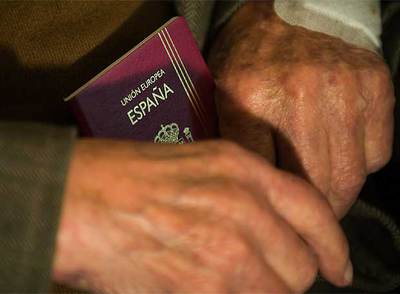Trump’s customs policy failed for the time being

The penguins can breathe a sigh of relief. At his legendary press conference in the Rosengarten of the White House at the « Liberation Day » Donald Trump The lonely Heard and McDonald Islands in the Indian Ocean also occupy tariffs, although only seabirds and seals live on the archipelago. The ten percent delivery to their imaginary exports to the USA is now off the table – for now.
Otherwise, a lot remains confusing after the sensational judgment of a New York Federal Court on Wednesday evening. The US court for international trade corresponded to the lawsuit of several companies and 13 states and blocked the tariffs imposed on April 2. According to the three judges, who by the way was appointed by Ronald Reagan, Barack Obama and Trump himself, the authority for the collection of such import taxes lies alone at the congress, and the president cannot remove this through the appeal to an emergency law from 1977.
Break for Trump’s customs-amoclauf-but not its end
This is a bitter setback for the president in the heart of his economic policy. His advisor and vice chief of staff Steven Miller rages over a « coup of state of the judiciary ». Serious American media speak of a « bang » and a « crashing defeat » for the president. The British Financial Times sees a « dramatic and largely unexpected » disturbance of the presidential customs amoclauf. But practically all experts agree: it is not the end.
For the European Union, which Trump identified in addition to China as the main opponent in his trade war, the judgment is nevertheless at an affordable time. The saying does not affect the 25 percent tariffs on cars and steel, which remain in force, but the so-called « reciprocal », which Trump justifies with trade weight weights. They were originally supposed to be 20 percent for the EU for all goods, but were then temporarily reduced to ten percent. Trump recently threatened to increase to 50 percent, but shortly afterwards this horror scenario exposed to July 9th. In the meantime, a « deal » is to be negotiated.
It will go to the Supreme Court – and that takes place
Now on the American side for the next week and months the complete chaos should be. The president’s lawyers immediately appealed against the judgment. The dispute should ultimately be decided in front of the Supreme Court. That will take. In the meantime, Trump could, of course, dig out other obscure laws with which he justifies a new advance for general tariffs, which would then apply until a dish collects him again.
At the moment, however, the judge means: The United States is not allowed to collect the reciprocal tariffs (and 20 percent taxes for Canada and Mexico) announced at the « Liberation Day » – even not the ten percent basic customs that Trump has never suspended against public perception. Politically, judges Alan Beattie, the trading expert of the Financial Timesshows the judgment that Trump’s customs policy is not only « grotesque in the substance », but also « vulnerable by external events ». Beattie advises the EU to choose a harder gait: « The EU would be ridiculous if it makes one -sided concessions in a deal without a legal basis. »
Experts warn of exaggerated euphoria
Nevertheless, experts warn of exaggerated euphoria. « In our conviction, the tariffs will hardly completely disappear, » said Mark Haefele, the chief investor of UBS Global, the Wall Street Journal: The Trump government can reintroduce at least part of its taxes on a different reason. The court ruling already opens up a small back door: states with which the US trade deficit is particularly large can be documented for 150 days with an import tax of 15 percent. For companies that export goods to the United States, the judgment means in addition to a short -term relief, one thing in particular – even more uncertainty on how to proceed.
Both the Federal Government and the EU reserved after the decision. A spokesman for the Federal Ministry of Economics said in Berlin that ongoing judicial proceedings could not be commented on in the United States. « We continue to rely on the fact that a good solution for both sides can be achieved in the negotiations between the EU Commission and the US government, » it said.
EU Commission is holding back and continues to negotiate
The EU Commission, responsible for trade policy, did not initially want to comment on the court decision. She is currently negotiating with the US government on a possible deal for the mutual cancellation of tariffs and other trade restrictions.
« For the EU and other exporters, the judgment does not offer any reason to calm down, » explains Laura von Daniels from the Science and Politics Foundation. It refers to other laws in addition to the emergency law that Trump could use to impose tariffs. « To do this, he has to participate in the congress and the implementation then takes a little longer, » she explains. Once introduced, the tariffs would then be preserved for many years.
The director of the German Economy Institute, Michael Hüther, does not regard the decision as a safe end to Trump’s customs policy. « It is certain that the uncertainty remains high, » he told the newspapers of the Funke media group. « Even if the courts definitely stop Trump, the damage to the trust that the trade policy in conjunction with questionable security promises and speculation about the role of the US dollar has caused a world currency. » Germany and Europe should reflect on their own strengths. (with dpa)









